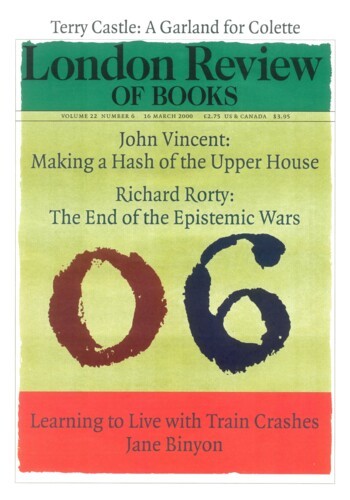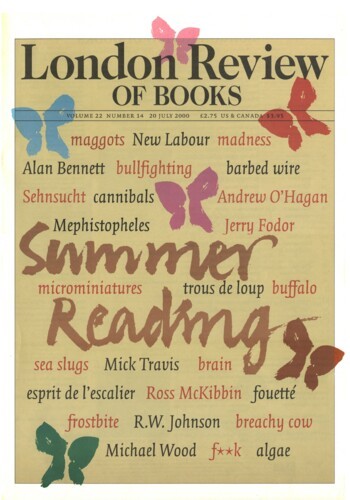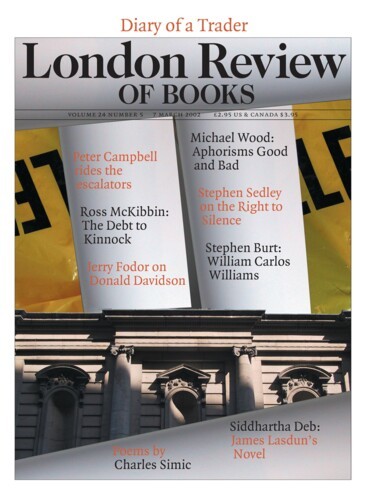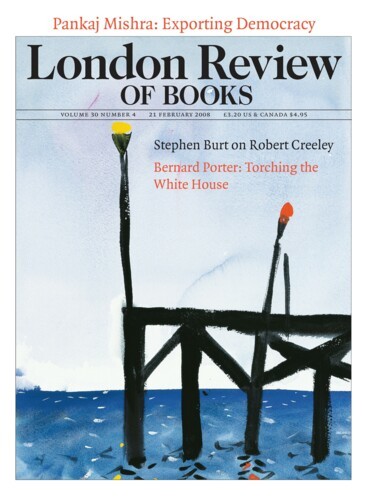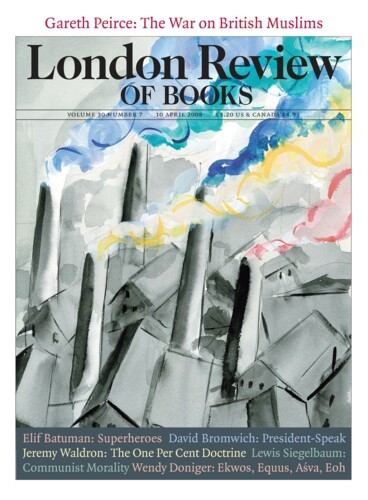Now for the Hills: Les Murray
Stephanie Burt, 16 March 2000
Prodigious and frustrating, welcoming and cantankerous, Les Murray’s body of work has made him both Australia’s best-known poet and its most powerful. Full of Australian history, places and things, his poetry also displays the more abstract qualities Murray likes to think of as Australian. Chief among these is ‘sprawl’, defined as ease, cheerful excess, unbuttonedness and unsnobbish self-confidence: ‘Sprawl is really classless … Sprawl is loose-limbed in its mind.’ Murray’s verse really does sprawl, and there’s a lot of it: some is blustery, sloppy or hard to listen to. His work flaunts its roughness, its male friendliness, its ‘defiance of taste’, its provincial or Boeotian identifications, its ethical doctrines and its Catholic ideals. His attitudes can be difficult to take, but his accomplishments are difficult to ignore. Among them are spectacular feats of description; character-studies with real moral force; sharp storytelling; and, now, the best very long poem in English for some time.‘
